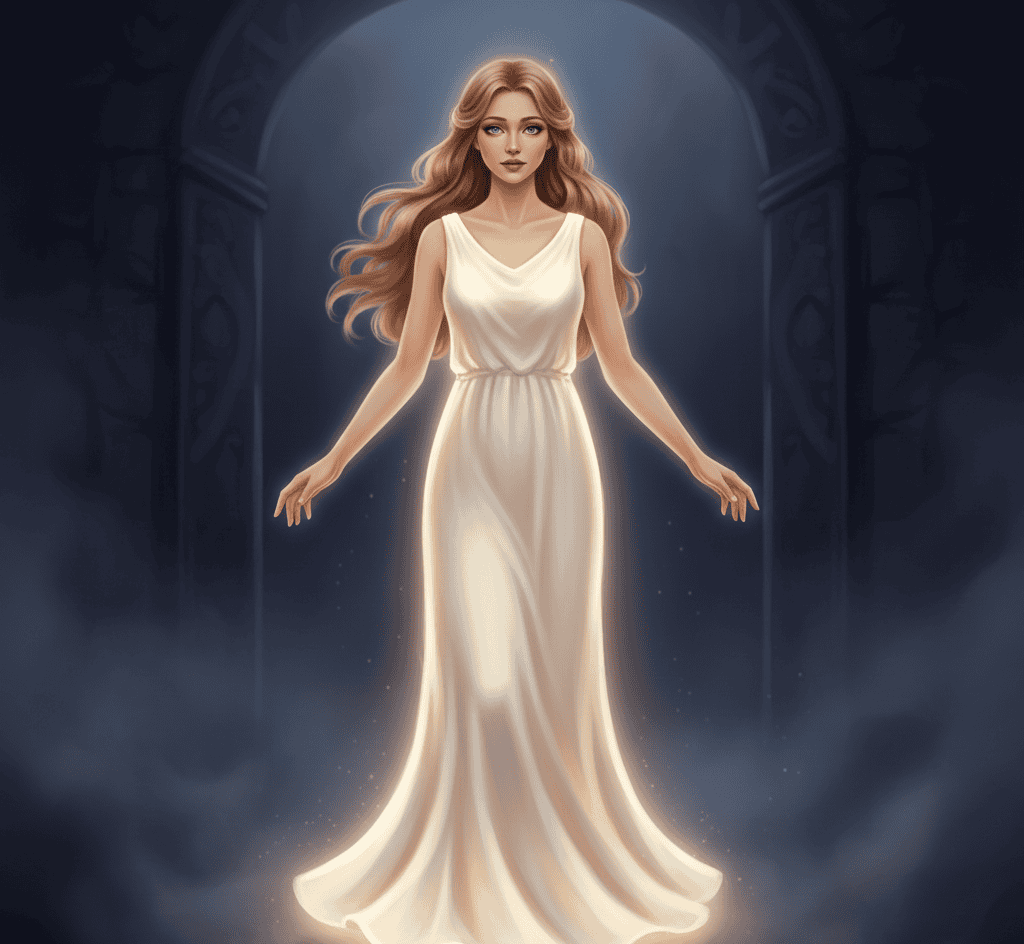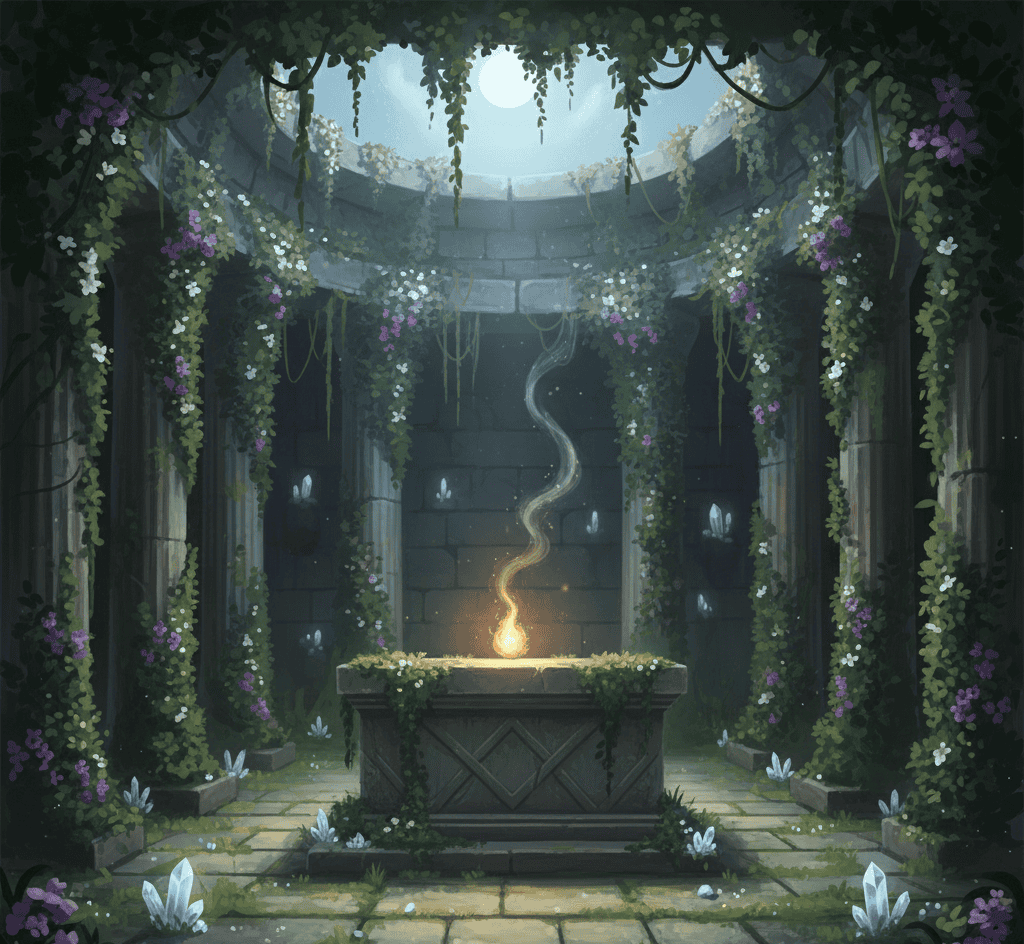Some gods ruled storms, some ruled seas, and some ruled the night sky. But in the deep, quiet corners of Greek mythology lived a goddess with a gentler purpose.
Her name was Macaria, daughter of Hades, and she embodied something rare in the ancient world: a peaceful death.
Far from the horror and fear usually associated with the Underworld, Macaria represented the soft ending, the restful passing, the final breath taken without pain or terror.
And yet, despite her unique role, almost no one today remembers her. Let’s bring her back into the light where she belongs.
A Soft Goddess Born From a Dark Kingdom
Macaria’s origins come from the somber world of Hades and Persephone, but she is not painted with the same shadows as her father.
While Hades ruled all who died, Macaria ruled the manner of their passing.
She was not the goddess of death itself. That belonged to Thanatos. Instead, she presided over peaceful ends, the kind reserved for the old, the weary, or the blessed.
Her name comes from the Greek word makarios, meaning “blessed” or “fortunate.”
And in an age when disease, war, and violence claimed most lives, slipping into death gently was considered a profound blessing.
Ancient sources barely mention her – she appears mostly in later writings and philosophical texts – but the few whispers we have paint a picture of a figure who brought comfort and quiet.
She was the calm within the storm of mortality, the candlelight flickering at the end of life’s long night. Macaria was not feared. She was welcomed.
She Chose a Role No Other God Wanted
Macaria’s mythic presence is unusual partly because it represents an emotional truth: many cultures fail to talk openly about peaceful death.
For the Greeks, death was often tied to tragedy and suffering. Heroes met violent ends. Ordinary people feared the Underworld. Funerals carried heavy rituals.
But someone needed to represent the softer side of mortality. That someone was Macaria.
In one tradition, she chose her role willingly. She did not seek glory, power, or worship.
Instead, she offered herself as the spirit who would meet souls at the threshold and guide them into the Underworld without fear.
She was the release after a long struggle, the comforting hand at the bedside.
While Thanatos dealt with the fact of death, Macaria governed the experience of it.
This gave her a quiet but profound importance. If Thanatos was the unavoidable shadow, Macaria was the warm dusk before nightfall.
The Lost Sanctuary of Macaria
Even though she was not one of the major Olympian deities, Macaria had her own sacred space.
Ancient writers mention a sanctuary dedicated to her in Marathon, connected to the Heracleidae – descendants of Heracles (Hercules).
According to the story, Macaria offered herself as a sacrifice to bring victory to her people during a time of war.
Because of this brave act, she became associated not only with peaceful death but with noble sacrifice.
Her cult was not widespread, but it was deeply meaningful to those who knew her story.
People honored her as a figure who died willingly for the greater good and who, in turn, ensured the gentle deaths of others.
This sanctuary is one of the rare pieces of historical evidence that place Macaria firmly within Greek religious practice, not just myth.
It also hints at how comforting her presence must have been. In a culture that took omens seriously and feared restless spirits, a deity who promised a painless transition would have been precious.
A Different Kind of Underworld Goddess
While her siblings often represented darker or more chaotic aspects of the Underworld, Macaria’s presence adds warmth to a realm usually painted in bleak colors.
Unlike Melinoë, the ghostly daughter associated with nightmares and phantoms, or Zagreus, a figure sometimes tied to rebirth and Orphic mysteries, Macaria stayed rooted in the quiet dignity of death.
She had no monsters at her command, no shrieking shades, no terrifying punishments.
She did not roam battlefields like the Keres or punish sinners like the Erinyes. She was, instead, the final kindness.
Her energy resembles the hush that comes after chaos – the sigh, the softening, the lifting of pain.
If Persephone embodies the cycle of life and rebirth, Macaria embodies the end of that cycle, not with violence but with mercy.
Some scholars believe she may have originally been a local spirit elevated later into a daughter of Hades.
Others argue she filled an emotional gap left by the larger myths, created to personify the type of death every family hoped for.
Either way, her presence made the Underworld feel more human.
Why Macaria Matters Today
Modern readers often find Greek mythology full of drama, battles, and tragic ends. But Macaria reminds us that the ancient world understood another truth: not all endings are frightening.
Her role speaks to something universal – the desire for a peaceful final moment.
Cultures across history created spirits or gods to comfort mourners and ease the fear of death. For the Greeks, that gentle figure was Macaria.
Today, she offers a symbolic reminder that death is not always an enemy. Sometimes it is simply the close of a story, quiet and calm. Sometimes it arrives with warmth rather than cruelty.
Macaria is the goddess for those who hope for rest instead of struggle, for release instead of fear.
She is the soft halo around the darker myths, the forgotten daughter of Hades who carried a gift no one else could offer.

I always felt a strong connection to the Divine since my birth. As an author and mentor, my mission is to help others find love, happiness, and inner strength in the darkest of times.






